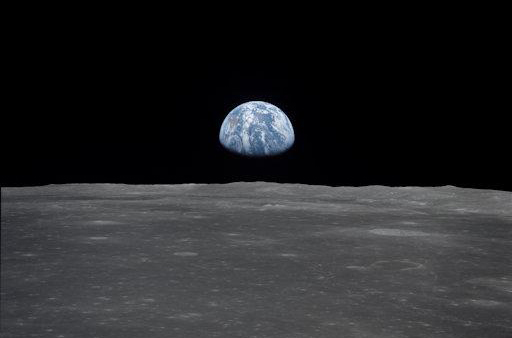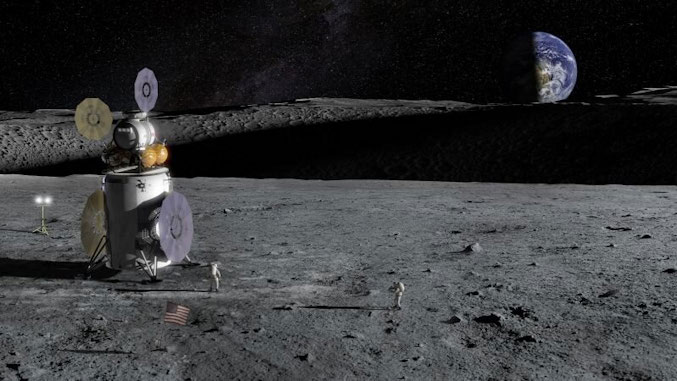News

Using the Moon as a Backup for Humanity’s Data
The world in which we live poses challenges to the future of humanity. There are a number of factors outside of our control, as history has shown through extinction events that altered life on our planet and the Covid-19 pandemic demonstrated that nature can disrupt our way of life in ways we cannot imagine. And there are the challenges we heap upon ourselves, from climate change to war, and even, some believe, artificial intelligence.
Looking at all of this, scientists have begun to question what should be done in the event that humanity is wiped out, and how to rekindle our species in that event. There is a lot of information that has passed from generation to generation over the millenia that humans have been on Earth. But what would happen if there was no previous generation to pass on to a new generation seeking to restart humanity?

Earthrise, Apollo 11. Credit: NASA/JSC
In an effort to address this problem, researchers from Harvard and the University of Wisconsin have published a paper outlining how the Moon is an ideal place to store all of humanity’s knowledge, keeping it safe to one day be used to get things back on track. The data that has been accumulated and stored on Earth faces potential threats to its being passed along, the authors argue, but by storing the knowledge of humanity on the Moon, it would be safe and available when needed.
The researchers outlined how the steps to return humans to the Moon, including NASA’s Artemis Program and other missions being developed by other nations, provide a key component for establishing this database. It is argued that once a base has been established, one of the goals should be to begin the transfer of knowledge for safe keeping. But how to transition from simply landing on the Moon to building and living on the surface long-term is a challenge that remains to be addressed.

Conceptual Artemis mission to the Moon’s south pole. Credit: NASA
As an integral part of the plans to continue exploration of the Moon and eventually establish a long-term human presence, Motiv Space Systems is contributing to the infrastructure and logistics that will be needed to build this off-world database. Our engineering research into robotics that are capable of operating in the harsh lunar environment has positioned us to provide the Artemis missions with valuable capabilities to build permanent structures on the lunar surface.
Additionally, our designs for the autonomous assembly of structures in Earth orbit could be modified to autonomous assembly on the surface of the Moon. By deploying robotic systems to help astronauts with building a habitat, the process can be sped up and improved, ensuring that the necessary physical environment to house a database will be in place.
Motiv engineers have repeatedly demonstrated to NASA how revolutionary our robotic and mechanical system designs are, and being afforded the opportunity to continue those demonstrations by contributing to the construction of a database of human knowledge on the Moon is something we are looking forward to.